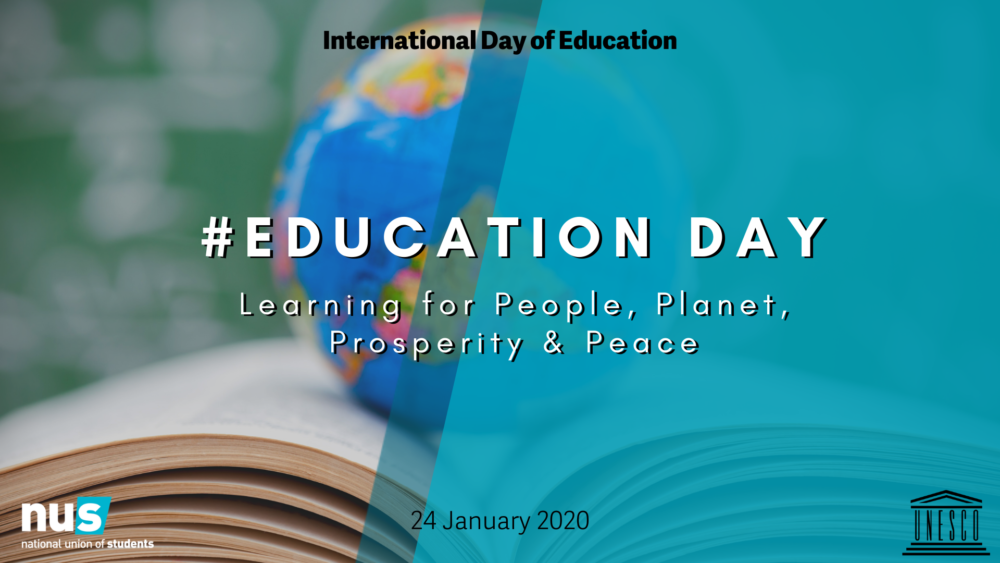On December 3, 2018, The United Nations General Assembly adopted a resolution to declare the 24th of January, the International Day of education. This was done with a goal to celebrate the significance of education to help achieve development and peace around the world.
Almost 265 million children in the world lack formal education and access to schools. This day will hence persuade the World Education Organization to remain focussed on the education system around the world.
Education is a Human Right as Article 26 of the Universal Declaration of Human Rights mentions the Right to Education. This right proposes free and compulsory elementary education in order to make sure that the benefit reaches the specific children. The International Day of Education was constituted by Nigeria and 58 other member states, which ensure equitably and quality education for all.

The following are facts and figures given by the United Nations:
- Enrolment in primary education in developing countries has reached 91% but almost 57 million primary age children do not go to schools.
- More than half of the children who have not been enrolled in schools live in sub- Saharan Africa.
- An estimated 50% of out-of-school children of primary school age live in conflict-affected areas.
- 617 million youth worldwide lack basic mathematics and literacy skills.
- According to the United Nations, a lack of trained teachers, inadequate learning materials, and poor sanitation facilities makes learning difficult for many children. Studying in such an unhealthy environment is the most significant reason that children avoid coming to school.
- In efforts to handle these problems and to “ensure comprehensive and just quality education and promote womb-to-tomb learning opportunities for all”, the international organization has provided ten “targets” to counter these issues and reach logical solutions for these issues and hurdles.
These targets include:
- To make sure that all girls and boys have access to free, just, and quality primary educational activities that would result in relevant learning outcomes and solutions.
- To make sure that all youngsters have access to quality early childhood development, care, and pre-primary education so they’re prepared for the primary education that would follow.
- To make sure that all men and women have equal access to reasonable, vocational, and technical education, as well as opportunities to join and learn in universities
- To eliminate gender disparities in education and ensure equal access to all levels of education and vocational training for the vulnerable, as well as people with disabilities, indigenous peoples, and children in endangered situations.
The International Day of Education of 2021 will be marked under the theme “Recover and Revitalize Education for the COVID-19 Generation”.
According to UNESCO, the third International day aims to:
- Highlight commitments and follow up actions that have been taken to protect education through recovery.
- Let the generation of COVID-19 express their concern and aspirations regarding the future plans of economic recession and climate change.
- Appreciate the initiatives led by the government, organizations, and institutions for their efforts during the global pandemic. This is done with an aim to strengthen the leadership to ensure consistent support in the future.
Also read,











